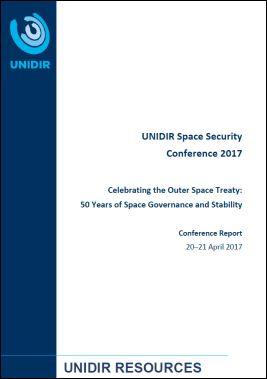The year 2017 marks the fiftieth anniversary of the entry into force of the Outer Space Treaty. Since then, space activities have increased both in number and importance. While continuing to support military operations, space systems have become an indispensable tool for an expanding range of activities, and an invaluable source of socio-economic benefits for billions of people on Earth. However, the strategic value of outer space is threatened as space systems are subject to numerous threats and hazards, ranging from anti-satellite weapons and cyber attacks, to space debris and signal jamming. Irresponsible behaviour in space operations also contributes to undermining confidence and trust among space actors. The international community has been engaged in multiple activities to enhance international stability and ensure that space operations can be safe, secure and sustainable over the long term. These include multilateral initiatives, primarily within the United Nations, to promote and build multilateral consensus on norms of behaviour. Nonetheless, progress has been intermittent and further work is required.
UNIDIR's 2017 Space Security Conference reviewed the main multilateral international initiatives to safeguard access to, and use of, outer space and assess the adequacy of the outer space regime in an evolving space environment, where new threats to space systems and developments in space activities are believed to be potentially destabilizing. The Conference, organized at a time when situational awareness, preparedness, resilience and strategic autonomy have become critical factors for all our public policies, represents a much-needed complement to shaping more incisive security policies.
Citation: Space Security Programme (2017) "Celebrating the Outer Space Treaty: 50 years of Space Governance and Stability", Space Security Conference 2017 Conference Report, UNIDIR, Geneva.
